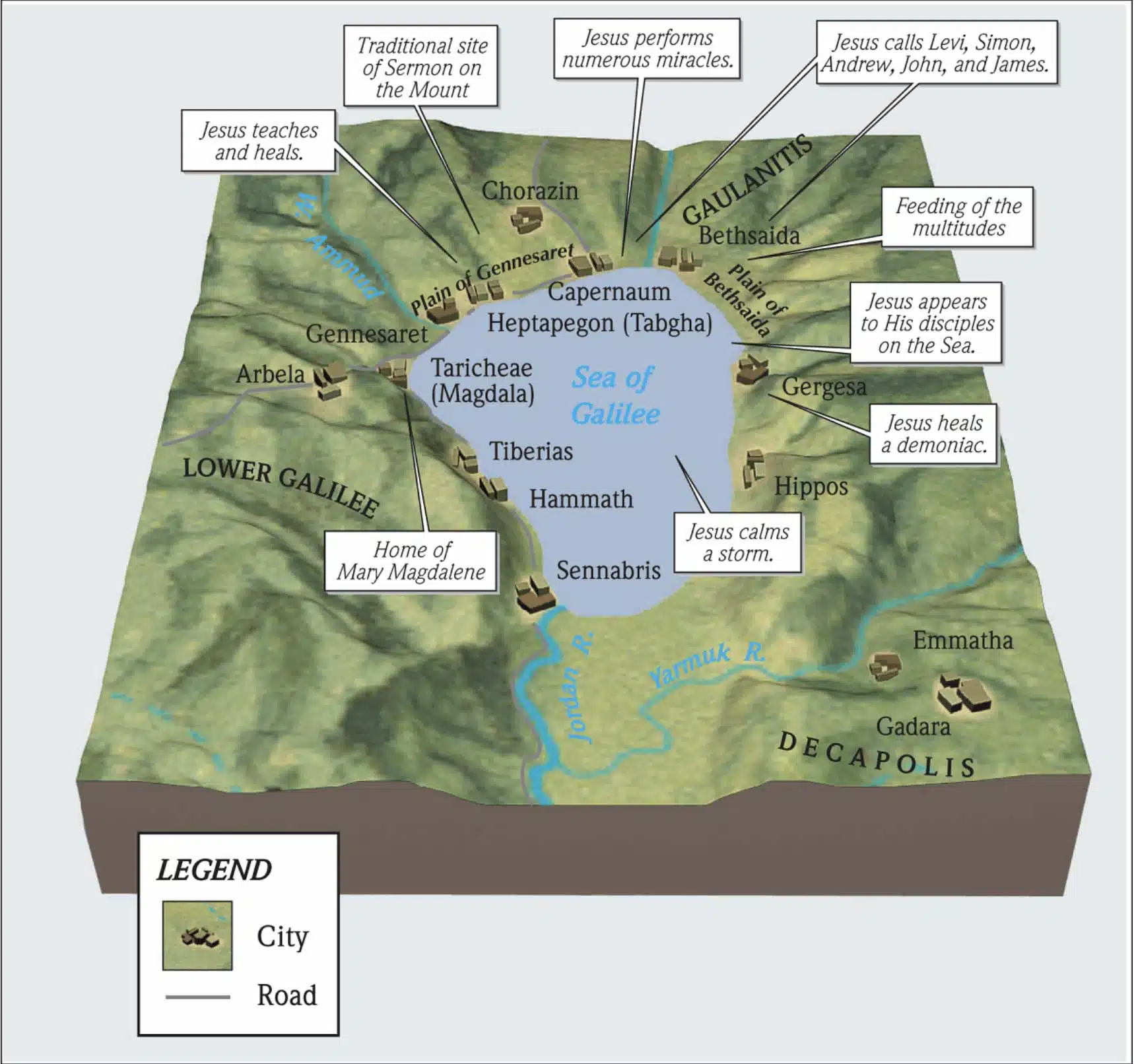Matthew 1 Commentary
Please choose a passage:
Matthew 1:1
Matthew begins his Gospel account by sharing the genealogy of Jesus, the Messiah. By beginning with Abraham, Matthew is showing how Jesus is the fulfillment of key provisions of God’s covenant with Abraham.
Matthew 1:2-3a
Matthew shares the genealogy of Jesus from Abraham to King David. And then continues through the line of kings with David’s son, Solomon.
Matthew 1:3b-4
Matthew cites the generations between Perez, who lived in Canaan prior to moving to Egypt, and Nahshon who was numbered in those coming out of Egypt, naming some but omitting most.
Matthew 1:5a
Matthew continues the genealogy of Jesus and includes another Gentile woman.
Matthew 1:5b
Matthew continues the genealogy and includes mention of a third Gentile woman.
Matthew 1:6a
Matthew completes his first major section of the genealogy with King David.
Matthew 1:6b-8
In Matthew 1:6-8 Matthew continues the genealogy of Jesus from David through the succession of kings from Solomon to Jeconiah whose reign ended with the Babylonian exile. Matthew is establishing Jesus’ credentials as “King of the Jews.”
Matthew 1:9-10
In Matthew 1:9-10 Matthew continues the genealogy of Jesus from David through the succession of kings from Solomon to Jeconiah whose reign ended with the Babylonian exile.
Matthew 1:11
In Matthew 1:11 Matthew continues the genealogy of Jesus from David through the succession of kings from Solomon to Jeconiah whose reign ended with the Babylonian exile.
Matthew 1:12-16
Matthew concludes his genealogy of Jesus by covering the period from the Exile event to the birth of the Messiah. This section emphasizes Jesus’s role as the Messiah.
Matthew 1:17
After concluding his genealogy of Jesus, the Messiah, Matthew explains that he has divided it into three groups of fourteen. In Jewish tradition the number fourteen is associated with King David.
Matthew 1:18-19
Matthew tells his account of Jesus’s miraculous conception and birth. His description of these events demonstrate and emphasize the dual natures of Christ, who was fully God and fully human.
Matthew 1:20-21
An angel of the Lord comes to Joseph in a dream and reveals four unusual things: his betrothed has been faithful to him despite her pregnancy; the child within her was conceived by God’s Spirit; the Son she will bear is to be named ‘Jesus’; He is the Messiah, for He will save His people from their sins.
Matthew 1:22-25
Matthew connects the miraculous birth of Jesus with the prophecy from Isaiah and the theological wonder that Jesus is God. After his genealogy and the descriptions of miracles and angelic dreams, Matthew rather plainly states the incredible, historical, wondrous fact that Jesus was born.




